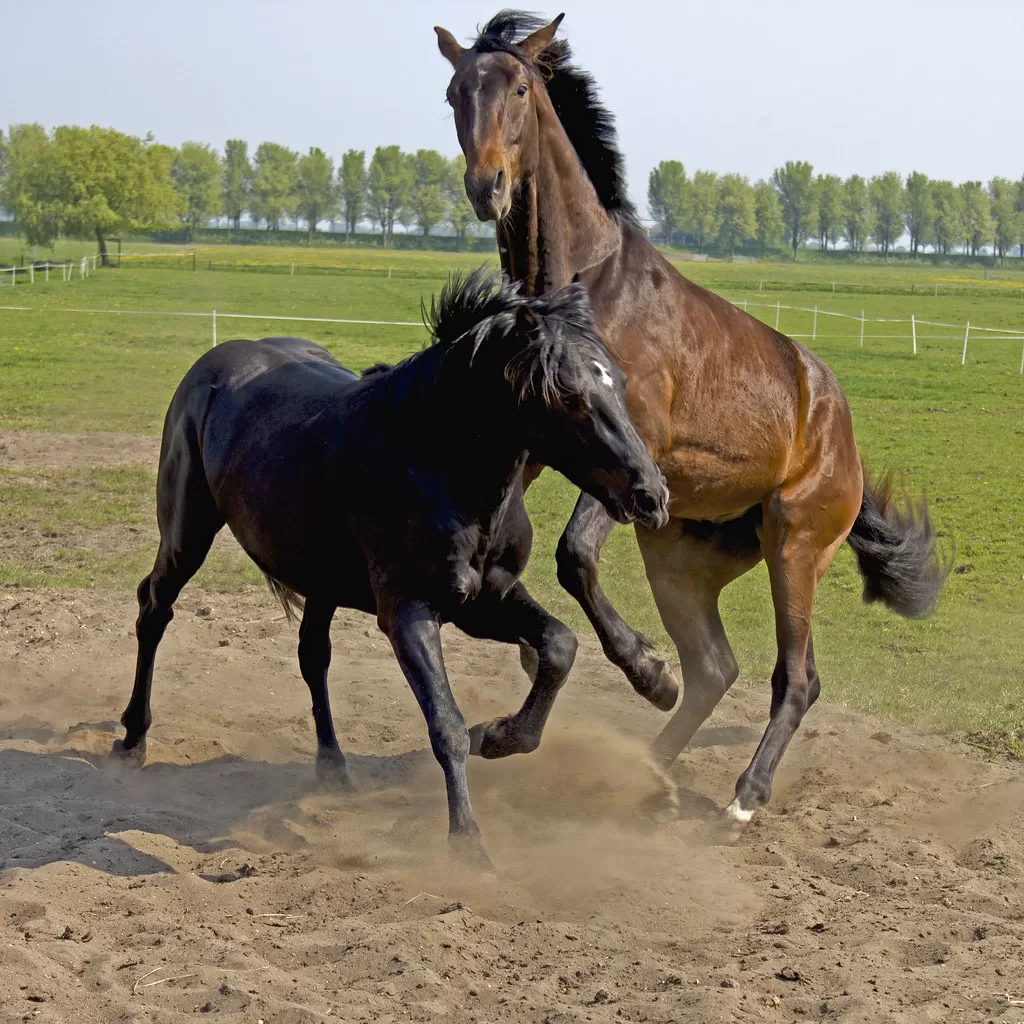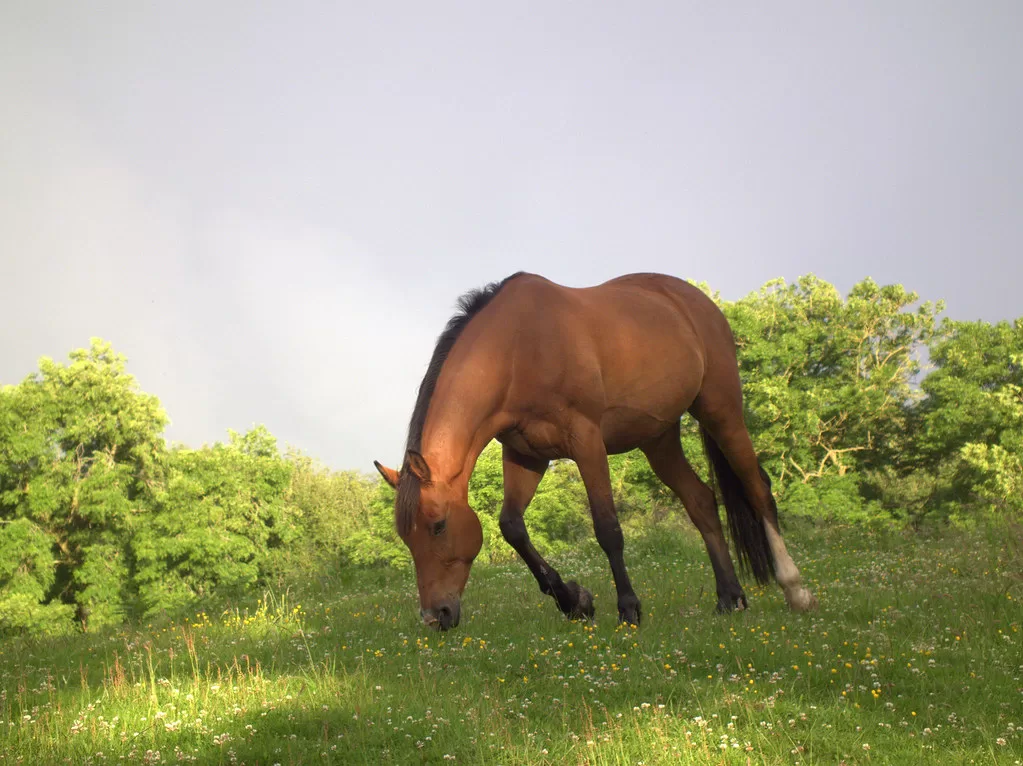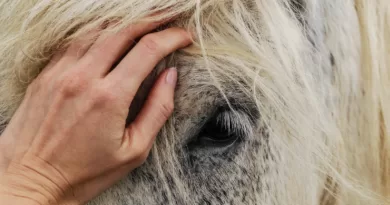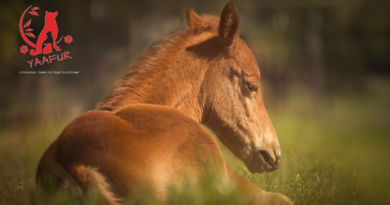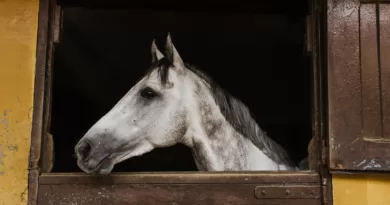How Long Do Horses Normally Live?
Horses, with their grace and strength, have captured the human imagination for centuries. From being our trusty companions in work and leisure to majestic symbols of freedom, these equine creatures have carved a special place in our hearts. However, their lifespan remains a subject of curiosity for many. In this article, we delve into the intriguing question: How long do horses normally live?
Unveiling the Lifespan of Horses
Understanding the Average Age
Horses, on average, live for about 25 to 30 years. This range, of course, varies due to multiple factors, including breed, genetics, and care.
Breed Matters
Different horse breeds exhibit variations in their lifespan. While some hardy breeds, like the Arabian horse, can live well into their 30s, others, such as the larger draft breeds, may have a shorter lifespan, typically around 20 to 25 years.
Genetics at Play
Genetics plays a vital role in determining a horse’s lifespan. Good genes can result in a longer life, while hereditary health issues may reduce it.
Care and Environment
The care and living conditions provided to a horse also significantly impact its longevity. Proper nutrition, regular exercise, and a safe environment are essential for ensuring a horse’s well-being.
Factors Affecting Longevity
Nutrition
A well-balanced diet is crucial for a horse’s overall health. Ensuring they receive the right nutrients can extend their lifespan.
Exercise
Regular exercise is not only vital for a horse’s physical health but also for its mental well-being. Adequate exercise can help prevent obesity and related health issues.
Veterinary Care
Regular check-ups and vaccinations are essential to catch and address health concerns early, thereby increasing a horse’s chances of a longer life.
Dental Health
Proper dental care is often overlooked but critical. Dental issues can lead to weight loss and other health problems if left untreated.
Stress Levels
A calm and stress-free environment is essential for a horse’s emotional health. High-stress levels can lead to various health issues.
Loving and Caring for Your Equine Companion
To ensure your horse enjoys a long and healthy life, it’s essential to provide them with proper care and attention. This includes:
- Balanced Diet: Consult a veterinarian or equine nutritionist to create a diet tailored to your horse’s needs.
- Regular Exercise: Ensure your horse gets enough exercise to stay fit and mentally stimulated.
- Routine Veterinary Check-ups: Schedule regular check-ups to catch and address any health concerns promptly.
- Dental Care: Don’t forget their dental health; regular dental check-ups are a must.
- Stress Management: Create a safe and low-stress environment for your horse to thrive.
Frequently Asked Questions
1. Can horses live longer than 30 years?
Horses can indeed live longer than 30 years, but it’s less common and often depends on their breed and individual health.
2. What’s the most crucial factor in a horse’s longevity?
Genetics plays a significant role, but overall care, including nutrition and medical attention, is equally important.
3. Do smaller horse breeds tend to live longer?
Generally, smaller horse breeds, like Arabians, have a reputation for longer lifespans compared to larger draft breeds.
4. Can you extend a horse’s life through proper care?
Yes, a well-cared-for horse is more likely to live a longer and healthier life.
5. Are there any warning signs of a horse’s declining health?
Yes, signs like weight loss, changes in appetite, lameness, and behavioral changes may indicate health issues.
6. What’s the ideal diet for a horse to promote longevity?
An ideal horse diet includes high-quality forage, balanced with grains or concentrates as needed, along with access to clean water.
7. What role does exercise play in extending a horse’s life?
Exercise is crucial for maintaining a horse’s physical and mental health. Regular exercise can help prevent obesity, improve circulation, and contribute to a longer, healthier life.
8. Can a horse’s lifespan be affected by its living conditions?
Yes, a horse’s environment significantly impacts its lifespan. Providing a safe and stress-free living space with proper shelter and access to clean water is essential for their well-being.
9. Are there any specific health challenges that can shorten a horse’s life?
Horses may face health challenges like colic, laminitis, or joint issues that can impact their longevity. Timely veterinary care and preventive measures can help mitigate these risks.
10. How can I ensure my senior horse enjoys a comfortable retirement?
As horses age, they may require special care. Providing soft bedding, appropriate feed for their age, and regular veterinary check-ups can help senior horses live comfortably.
11. Is there a difference in lifespan between wild and domesticated horses?
Wild horses typically have a shorter lifespan due to the challenges of natural survival. Domesticated horses tend to live longer because they receive care and protection.
12. Can the gender of a horse influence its lifespan?
Generally, there is no significant difference in lifespan between male (stallions) and female (mares) horses. Lifespan is more dependent on individual factors and care.
13. How can you promote a horse’s emotional well-being?
While physical health is undoubtedly essential, emotional well-being also plays a crucial role in a horse’s longevity. Therefore, it’s important to spend quality time with your horse, offer companionship, and ensure a harmonious herd environment to keep their spirits high.
14. What role does genetics play in a horse’s lifespan?
Genetics lay the foundation for a horse’s health and longevity. Researching a horse’s lineage and breeding for desired traits can positively impact its lifespan.
15. Can changes in a horse’s routine affect their longevity?
Horses thrive on routine; consequently, abrupt changes can cause stress. However, by implementing gradual transitions and maintaining familiar schedules, you can significantly contribute to a longer, happier life for your equine companion.
The Timeless Beauty of Equine Companions
In the grand tapestry of life, horses stand as timeless and cherished companions. Furthermore, their longevity is a testament to the care and devotion of their human partners. By understanding the factors that influence a horse’s lifespan and, more importantly, by providing them with the best possible care, you can ensure that your equine companion continues to grace your life with their presence for many years to come.
See Also: How long do horses live? Amazing Facts About Horses’ Life
In conclusion, understanding how long horses typically live requires consideration of breed, genetics, and care. With proper nutrition, regular exercise, veterinary attention, and a nurturing environment, you can enhance your equine companion’s chances of a long and fulfilling life.
summary: Explore the factors influencing a horse’s lifespan and discover how to ensure your equine companion enjoys a long and healthy life. Learn about breed variations, genetics, and essential care practices that contribute to their longevity.
Enjoyed this article? You May Also Like:
- Learn in 5 minutes about Cryotherapy for Horses
- Penicillin in Horses; Impeccable Guide in 10 minutes
- Excede Antibiotic For Horses, Fantastic Facts in 5 minutes
- The Science of Oxytocin in Horses: How This Hormone Influences Equine Behavior
- Can Horses Swim? Everything You Need To Know About Horse Swimming


